The Jury's Secret
Brief Synopsis
Cast & Crew
Edward Sloman
Kent Taylor
Fay Wray
Jane Darwell
Nan Grey
Larry Blake
Film Details
Technical Specs

Synopsis
When four hundred people die in a flood in Midland City, corrupt tycoon and phony philanthropist Brandon Williams, who has a daily newspaper column, encourages the citizens to remain stalwart and rebuild their city. William Sheldon, the self-appointed spokesperson for the lowland dwellers, who have repeatedly been the victims of floods due to government neglect, gives a speech condemning Williams' duplicitous attitude toward the people and his manipulations of city politicians. Aware that Williams is leaving town to escape the disaster mayhem, Bill publicly declares that unless Williams advocates a flood control bill, he won't be allowed to leave town. Williams, meanwhile, decides to continue his daily morale-boosting editorials while on his trip, but his ghost writer, Walter Russell, a failed novelist whom Williams has paid amply through the years, refuses to write for him any longer. Williams plans to recoup his million-dollar flood losses by instigating a panic on Midland stock, thereby bankrupting thousands of Midland citizens. Aware that Russell is heavily invested in Midland stock, Williams tries to blackmail him into remaining in his employ, but Russell stabs and kills him with a letter opener. Bill then comes to visit Williams and, denied entry by the butler, enters through the library terrace and finds Williams dead. The butler assumes Bill is the murderer, and Bill is arrested. While on his way out of town, Russell hears about the arrest and returns to Midland. Linda Ware, a Midland native who is now a journalist in New York, is sent to Midland to cover the murder trial, which has made national headlines. Years before, Linda and Russell were in love and he dedicated his first novel to her with the phrase, "I could not love thee, dear, so much, Lov'd I not honor more." Once reunited, they discover they are still in love, but while they plan a honeymoon trip, Russell receives a jury summons for Bill's trial. Linda convinces Russell it is his duty to serve, especially as public opinion has already deemed Bill guilty. Bill's mother and girl friend, meanwhile, have hired noted lawyer John Morrow, who senses that Russell will be the dissenting juror who will save Bill. The trial proves a travesty of justice. The judge is preoccupied with his upcoming fishing trip, while the jurors declare Bill guilty from the start. On the last day of the trial, the prosecutor plays for the court a recording of Williams' last editorial, and Linda recognizes Russell's voice on the tape. After twenty hours of deliberation, the jury is deadlocked and a new trial is set for the following week. Although Russell is relieved to have done his part in saving Bill, Linda points out that Morrow has quit the case and Bill will most likely be found guilty. When she sees a dictaphone in his apartment, Linda verifies with Russell's butler that Russell was Williams' ghost writer and is now sure he is the killer. Hoping to appeal to Russell's sense of honor, Linda leaves her glove on top of the dedication page to his novel and says goodbye to him. At 8:10, from a train bound for New York, Linda writes a telegram to her editor that, at 8:15, Walter Russell confessed to the murder of Brandon Williams.

Director
Edward Sloman
Cast
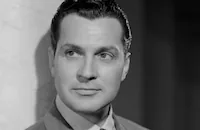
Kent Taylor

Fay Wray
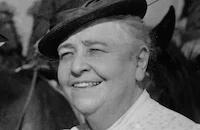
Jane Darwell
Nan Grey
Larry Blake
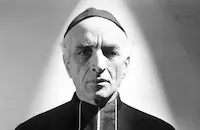
Fritz Leiber

Leonard Mudie
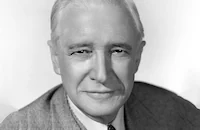
Samuel S. Hinds
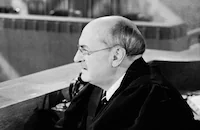
Granville Bates

Halliwell Hobbes
Edward Broadley

William Davidson
Billy Wayne
Robert Spencer
Ted Osborne
Joe Cunningham
Drew Demarest
Frank O'connor
Harry C. Bradley
Bert Roach
Virginia Sale
John "skins" Miller
Lillian Elliott
Ferris Taylor
Dick Rush
Art Yeoman
Jack Gardner
Ralph Brooks
Russ Powell
Charles Francis
Tom Jackson
Ben Lewis
Spencer Charters
Otto Hoffman
Chester Clute
Dick Elliott
Ben Taggart
Stanley Blystone
William Gould
Robert Homans
Bruce Mitchell
William H. Royle
Ed Phillips
Hugh Huntley
Elsa Christian
Leonard Sues
Ray Johnson
Edward Earl Kay
Lane Chandler
Heinie Conklin
Ernie Adams
Betty Brown
Billy Engle
Ed Brian
Broderick O'farrell
Frances Robinson

William Lundigan
Henry Hunter
Harry Tenbrook
Charles Murphy
Betty Roche
Crew
A. Armstrong
Jack Bernhard
John Brooks
John Brooks
Philip Cahn
Frank Carr
Charles Carroll
Ed. Case
Sherman Clark
Charles H. Clarke
Lester Cole
Lester Cole
Camille Collins
Katherine Doyle
Bill Ely
Fred Frank
M. George
Frank Gorbeck
Edmund Grainger
Les Hydeman
J. Kamshulte
Milton Krasner
Newman Levy
Frank Madigan
Doris Mccoig
John Mehl
J. Muchmore
M. F. Murphy
Jack Otterson
Robert Pierce
Charles Previn
Ed Regan
Jack Rixey
Geo. Schuman
Nagene Searle
Gil Valle
Edwin Wetzel
Marion "bud" Wolfe

Film Details
Technical Specs

Quotes
Trivia
Notes
This film's working titles were More Than Love, Deadlocked and Deadlock. According to files in the MPAA/PCA Collection at the AMPAS Library, on October 6, 1937, Joseph I. Breen, Director of the PCA, wrote to Universal censor Harry H. Zehner informing him that this film was in violation of the Production Code because of "the kidding and ridiculing of the administration of justice, which tends to undermine respect for, and confidence in the law." Breen listed his particular objections as follows: "The judge's deliberate wise-cracking while on the bench seems inconsistent with judicial dignity....omit wink on the part of Juror Graves, in order to avoid this suggestion of perjury. All the business of the Judge examining a catalogue for fly rods on the bench, practicing in his chambers, being dressed for fishing, and impatient to get away, is an undue and anti-social reflection on the judiciary....do not exhibit any money in connection with the poker game in the jury room. The business of the Foreman tossing a coin for the verdict is objectionable, and must be omitted." Breen also objected to part of "Sheldon's" speech in which he refers to "a powerful lobby in the United States Senate," and suggested the line, "He controlled the political machine." Breen asked that Universal omit the "gruesome details" in showing the stabbing of "Williams," advised subsituting the words "public sentiment" for "lynch mob" in the newspaper insert, and suggested that a reference be made to some other criminal than the "Lindbergh kidnapper." A memo dated October 12, 1937 states that, as a result of a conference with PCA officials and Universal executives, "it is definitely understood that in the finished picture, there must be nothing that would cast reflection on the Judiciary or the Judicial processes." Despite Breen's protestations, in the final print, the judge is preoccupied with his fishing trip, and the jury is more interested in being released from their duty than in insuring that justice is served. This film includes stock footage of floods. The Universal production files found at the USC Cinema/Television Library contain discrepancies with the Call Bureau Cast Service of the character names of some of the film's bit players.












